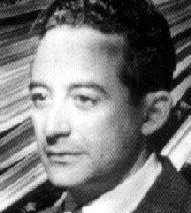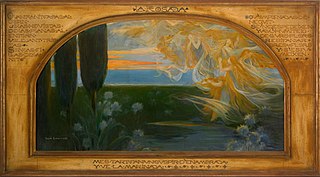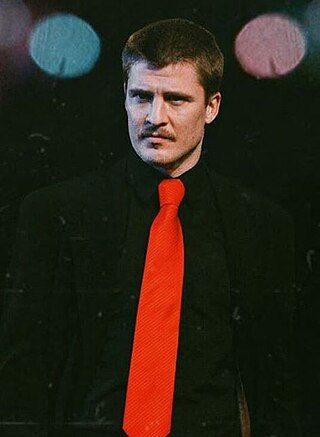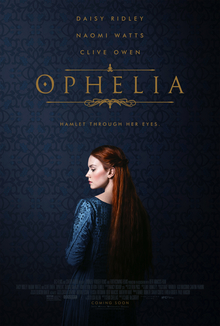
Eduardo Quiles (born 12 April 1940 in Valencia, Spain) is a playwright and writer.

Eduardo Quiles (born 12 April 1940 in Valencia, Spain) is a playwright and writer.
Quiles is the author of the novels Time Ashes (on the Spanish Civil War) and El carnaval del relajo, which reflects their experience in Latin America. Quiles lived in Mexico City from 1972 to 1975 where he taught screenwriting at the Latin American Institute for Educational Communication, wrote Philip II, Freud and Trial of Don Quixote to Televisa's Channel 8, practiced journalism and was drama critic of El Sol de Mexico.
In 1972 the BBC of London translated into English his work Insomnia. Since 1974, the American magazine Modern International Drama in English began broadcasting eight of his most significant dramas. The State University of New York premiered his play The Employee. Quiles in 1980 founded the theater company Escena Uno and traveled in Europe and the United States, directing his works and lecturing on his The Character's Teatre. In New York offered The Refrigerator (1987) The Bridal Chamber (1989), A Ophelia without Hamlet (1997), Elsa's Goodbye (1996-1997), produced in Multi-Here Arts Center in Manhattan. In 1999 he traveled again to New York by The Miranda Theatre invited to direct the opera Elsa's Goodbye based on theater piece and in turn being the author of the libretto. That same year he premiered A Ophelia without Hamlet in Berlin as a guest work under the German Hispanists Congress where Quiles gave a lecture at the University of Berlin.
Subsequently, he released in Germany in German-Spanish bilingual edition works The razor, The Refrigerator and Elsa's Goodbye. In 2001 his book The Character's Teatre (selected works) was published in Madrid by the Association of Authors' Theatre. The Marquise of Havana was again published by the Institution Valencia Alfons the Magnanimous Library.
In 1987, Quiles founded the magazine Art Teatral, which specializes in contemporary theatrical writing. [1] [2]
Art Teatral promotes the diffusion of contemporary dramatic authors by means of publication of their short plays, whose knowledge provides an overview of modern theatrical writing. On average, it publishes ten short dramatic illustrated plays in each issue. Every issue includes, moreover, an updated bibliography of all participant authors and half a dozen of essays about the importance of brief genres in theater history and in each author's theatrical work. Art Teatral has an anthological collectable nature. So far, general issues, monographic issues about Valencian and other Autonomous Regions, and about French, Italian, Portuguese, American and Latin American dramatists, have been published: 200 short plays altogether, including monologues, and a fair amount of essays.
One characteristic of Quiles is his variety of records: theater, novels, short story, youth fiction, libretto of opera, poetry, radio scripts, TV. film and journalism. Even in a piece of theatrical creativity as the minipieza, Quiles has many titles, being The wonderful manipulator a true reflection of the minimalist principle that less is more, perceived as a research laboratory where the microcosm brings together basic elements of theater architecture written: idea, story, character, conflict, drama. Dramas in miniature, dramatic synthesis as defined by the author himself, which is why in 1987 founded a magazine in that direction as Art Teatral. Also, his passion for the short work opened the roads of the short story, and here his story could include A clarinetist in the Gothic Quarter and The dreams coffee awarded in Buenos Aires in 2009.
Regarding his play, it becomes a conjunction, a synthesis of classical drama and language of art and where the Quiles theater pillar is the creation of dramatic character, lesson drawn from the study of classics, especially of Greek tragedy and Elizabethan drama, in this case being obliged to cite the influence of Sophocles and Shakespeare. That two Quiles plays are for Antigone in his role and Ofelia without Hamlet, as pointed out by some scholars of his work, is more than a stunt by chance. On the other hand, if he devoted himself to cultivate various kinds of narrative and theater was because of his idea of the integral writer. From a young age I realized, Quiles say that the playwright has only one tool for creating plays: the dialogue. So theatrical practice leads to mastery of dialogue, but not of the narrative that is a matter of novelists. It would only be possible to control dialogue in depth and narrative if we write dramas, novels and stories at par. The road then was marked and I transit by both routes still searching for this utopia, perhaps unattainable, the integral writer.
Juvenile Fiction:
Trotapesquis (Premio Iberoamericano de Dramaturgia Infantil)

Kevin Delaney Kline is an American actor. Kline is known for his over five decade career as a leading man on stage and screen. He is the recipient of an Academy Award and three Tony Awards, and has been nominated for two British Academy Film Awards, two Primetime Emmy Awards, and five Golden Globe Awards. In 2003, he was inducted into the American Theatre Hall of Fame.

Margarita Xirgu Subirá, also Margarida Xirgu, was a Spanish stage actress, who was greatly popular throughout her country and Latin America. A friend of the poet Federico García Lorca, she was forced into exile during Francisco Franco's dictatorship of Spain, but continued her work in America. Notable plays in which she appeared include Como tú me Deseas, La casa de Bernarda Alba, and Mariana Pineda.

Xavier Villaurrutia y González was a Mexican poet, playwright, translator, and literary critic whose most famous works are the short theatrical dramas called Autos profanos, compiled in the work Poesía y teatro completos, published in 1953.

Sergi Belbel i Coslado is a Catalan-speaking Spanish playwright. He was the director of the Teatre Nacional de Catalunya from 2006 until 2013.

Adrià Gual i Queralt was a Catalan playwright and theatre businessman, founder of the Escola Catalana d'Art Dramàtic and a pioneer of cinema in Barcelona.
Alberto Miralles Grancha was a Spanish dramatist, the author of some 40 plays.

Numerous cultural references to Hamlet reflect the continued influence of this play. Hamlet is one of the most popular of Shakespeare's plays, topping the list at the Royal Shakespeare Company since 1879, as of 2004.

Hamlet is a grand opera in five acts of 1868 by the French composer Ambroise Thomas, with a libretto by Michel Carré and Jules Barbier based on a French adaptation by Alexandre Dumas, père, and Paul Meurice of William Shakespeare's play Hamlet.
Joan Abellan i Mula is a Catalan playwright and essayist.

Jorge B. Merced is a New York-based Puerto Rican actor, theatre director, and gay activist. He is associate artistic director of Pregones Theater, a bilingual (Spanish/English) Puerto Rican/Latino theater company located near Hostos Community College in the Bronx, New York City. He is best known for his role as Loca la de la locura [The Queen of Madness] in Pregones's play El bolero fue mi ruina [The Bolero Was My Downfall].
Nabyl Lahlou is a Moroccan theater director, author and actor, known for being an innovative theater and film director, and is considered one of the most influential Moroccan theater directors of the 1980s.

Ophelia is a character in William Shakespeare's drama Hamlet (1599–1601). She is a young noblewoman of Denmark, the daughter of Polonius, sister of Laertes and potential wife of Prince Hamlet, who, due to Hamlet's actions, ends up in a state of madness that ultimately leads to her drowning.
Juan José Videgain is a Spanish writer, actor and director. Most of Videgain's books have reached cult status thanks to their weird sense of humor in Spain. He is from an old theatrical family in Spain. Salvador Videgain is his grandfather, José María Alvira is his granduncle. He has written narratives, essays, and biographies. He is an active member of organizations dedicated to charity.
Hamletmachine is a postmodernist drama by German playwright and theatre director Heiner Müller. Written in 1977, the play is loosely based on Hamlet by William Shakespeare. The play originated in relation to a translation of Shakespeare's Hamlet that Müller undertook. Some critics claim the play problematizes the role of intellectuals during the East German Communism era; others argue that the play should be understood in relation to wider post-modern concepts. Characteristic of the play is that it is not centred on a conventional plot, but partially connects through sequences of monologues, where the protagonist leaves his role and reflects on being an actor.
Marcela Yolanda Del Río y Reyes is an intellectual, professor, journalist, diplomat and writer. Her works cover national and global issues.

Mateo Chiarino is a Uruguayan actor, writer, and director of film, stage, and television. He is currently based in Buenos Aires, Argentina.

Ophelia is a 2018 historical romantic drama film directed by Claire McCarthy and written by Semi Chellas about the character of the same name from William Shakespeare's play Hamlet. Based on the novel by Lisa Klein, the film follows the story of Hamlet from Ophelia's perspective. It stars Daisy Ridley in the title role, alongside Naomi Watts, Clive Owen, George MacKay, Tom Felton and Devon Terrell. The dialogue is in modern English.
Theatrical productions in Honduras are a relatively new phenomenon, with no established theatrical tradition.
Joan Josep Guillén i Zambrano is a draftsman, painter, scenographer, and professor of performing arts.

The theatre of Italy originates from the Middle Ages, with its background dating back to the times of the ancient Greek colonies of Magna Graecia, in Southern Italy, the theatre of the Italic peoples and the theatre of ancient Rome. It can therefore be assumed that there were two main lines of which the ancient Italian theatre developed in the Middle Ages. The first, consisting of the dramatization of Catholic liturgies and of which more documentation is retained, and the second, formed by pagan forms of spectacle such as the staging for city festivals, the court preparations of the jesters and the songs of the troubadours.